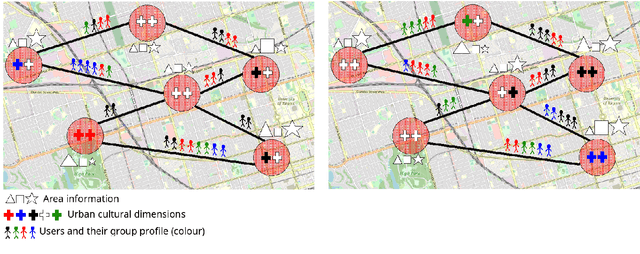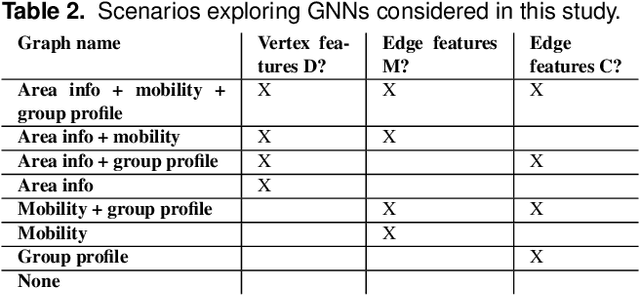Using Graph Neural Networks to Predict Local Culture
Paper and Code
Feb 27, 2024



Urban research has long recognized that neighbourhoods are dynamic and relational. However, lack of data, methodologies, and computer processing power have hampered a formal quantitative examination of neighbourhood relational dynamics. To make progress on this issue, this study proposes a graph neural network (GNN) approach that permits combining and evaluating multiple sources of information about internal characteristics of neighbourhoods, their past characteristics, and flows of groups among them, potentially providing greater expressive power in predictive models. By exploring a public large-scale dataset from Yelp, we show the potential of our approach for considering structural connectedness in predicting neighbourhood attributes, specifically to predict local culture. Results are promising from a substantive and methodologically point of view. Substantively, we find that either local area information (e.g. area demographics) or group profiles (tastes of Yelp reviewers) give the best results in predicting local culture, and they are nearly equivalent in all studied cases. Methodologically, exploring group profiles could be a helpful alternative where finding local information for specific areas is challenging, since they can be extracted automatically from many forms of online data. Thus, our approach could empower researchers and policy-makers to use a range of data sources when other local area information is lacking.
 Add to Chrome
Add to Chrome Add to Firefox
Add to Firefox Add to Edge
Add to Edge